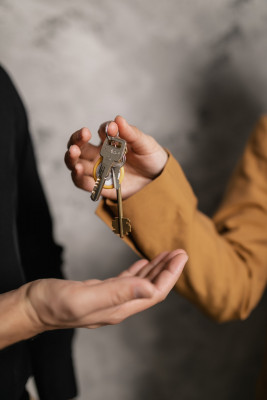Current Section: model

Lesson deposit
Money that is placed with others to keep without offering any compensation in return. For example, a man deposits a watch, a car, or cash with someone else.

Ruling of Deposits
The deposit is a permissible contract, and each contracting party may terminate the agreement whenever they wish. However, if the owner requests it back, it must be returned to him, and if the entrusted person returns it, the owner must accept it before; this is from cooperating upon righteousness and piety.
Wisdom of the Legitimacy of Deposits
Conditions may occur to a person in which he is unable to save his money - either due to the loss of the appropriate place, or because it is not possible. For incapacitation, illness, or fear - and someone else has the ability to keep his money for him.
That is why Allah has allowed deposits. On the one hand, it helps to protect money; on the other hand, it is a means to earn a reward for the person holding on to the deposit. So this is a form of ease for people and helps them to fulfill their needs.
The deposit has been legislated, and the basis for its legitimacy is the Quran, the Sunnah, consensus, and analogy. Allah says (Indeed, Allah commands you to return the trusts to their owners) [An-Nisa: 58].
Abu Hurayrah (may Allah be pleased with him) reported that the Messenger of Allah ﷺ said: «Return the trust to the one who entrusted you and do not betray the one who betrayed you.» (Abu Dawud, 3535)
Ruling on Accepting Deposits
It is desirable to accept the deposit for those who know they can save it. Due to the cooperation in righteousness and piety involved and obtaining the reward in looking after it.
The Fundamental Rules of Deposits
Cases in which the person holding the deposit is liable for the deposit:
Cases when a deposit goes from being a trust to a liability for the one holding onto the deposit.
If the depositor damages the deposit and did not mishandle or neglect it, he is not liable and is only obliged to keep it in a safe place appropriate for something of that value. On the other hand, if the depositor authorizes the person holding the deposit to dispose of it, it becomes a secured loan.
If the holder of the deposit fears something or wants to travel, he must return the deposit to its owner. If he is unable, then he should leave it with someone he trusts, so that it can be returned to the owner.

Whoever has money deposited to him and takes it out of his safekeeping or mixes it with something indistinguishable, and the whole thing is lost or destroyed, he is liable.
The person holding the deposit is entrusted and not liable unless he mishandles it or is negligent. His statement is accepted with an oath when returning the deposit, in a damaged state, not through neglect, unless there is no evidence proving the contrary.
Ruling of Deposits
The deposit is a trust with the person holding it, and it must be returned when the owner requests it. Allah says: (Indeed, Allah commands you to return the trusts to their owners.) [An-Nisa: 58]
If the deposit belongs to more than one person, and one of them asks for his share of what is measured, weighed, or counted, will have his share taken out and given back to him.






